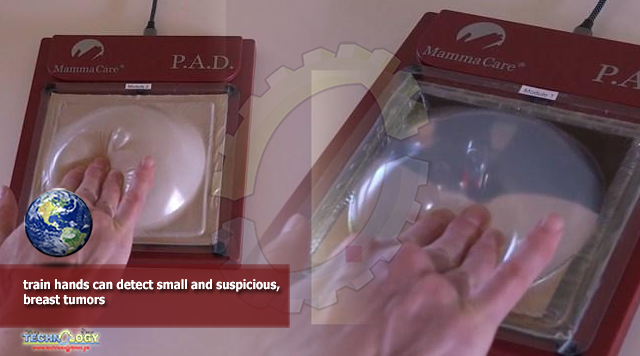Scientific and clinical evidence indicate that properly trained hands can detect small, suspicious, breast tumors before they advance to late, untreatable malignancies.

Although breast exams are performed widely, they are not performed well without training and practice. Recognizing the work of renowned inventor Louis Braille who calibrated fingers to read tiny raised dots, MammaCare scientists applied Braille’s principles to breast exams by calibrating the sense of touch to the detection of sub-centimeter tumors in complex breast tissues.
With the support of the National Science Foundation, MammaCare created a breast exam training platform and program that works anywhere while connected to Google Chrome’s internet browser.
Exam performance is converted into a data stream that can be reviewed by instructors who are given remote access.
The portable devices interact with and guide practitioners and students performance while monitoring and shaping their clinical exam skills on connected, tactually accurate, breast models until they reliably detect all suspicious, pea-sized (<0.5cm) tumors present.
False positives are reduced by learning to feel and confirm the difference between tumors and normal, lumpy breast tissues also present in the models.
MammaCare deployed the first version of the technology for the Women Veterans Health Program and is now equipping U.S. colleges of nursing and medicine, as well as Congressionally-sponsored National Breast and Cervical Cancer Early Detection Programs (NBCCEDP).
The worldwide need for skilled hands is demonstrated in Malaysia, Africa, US, India, Qatar/ Pakistan, Canada, Goldstein reported, adding that “reproducible, inexpensive technology now allows us to reach out within and across continents to calibrate and validate the essential exam skills of local nurses and practitioners for early detection, helping thereby to bring down the massive global burden of advanced, late stage breast cancer.”
Originally published at Cision pr newswire